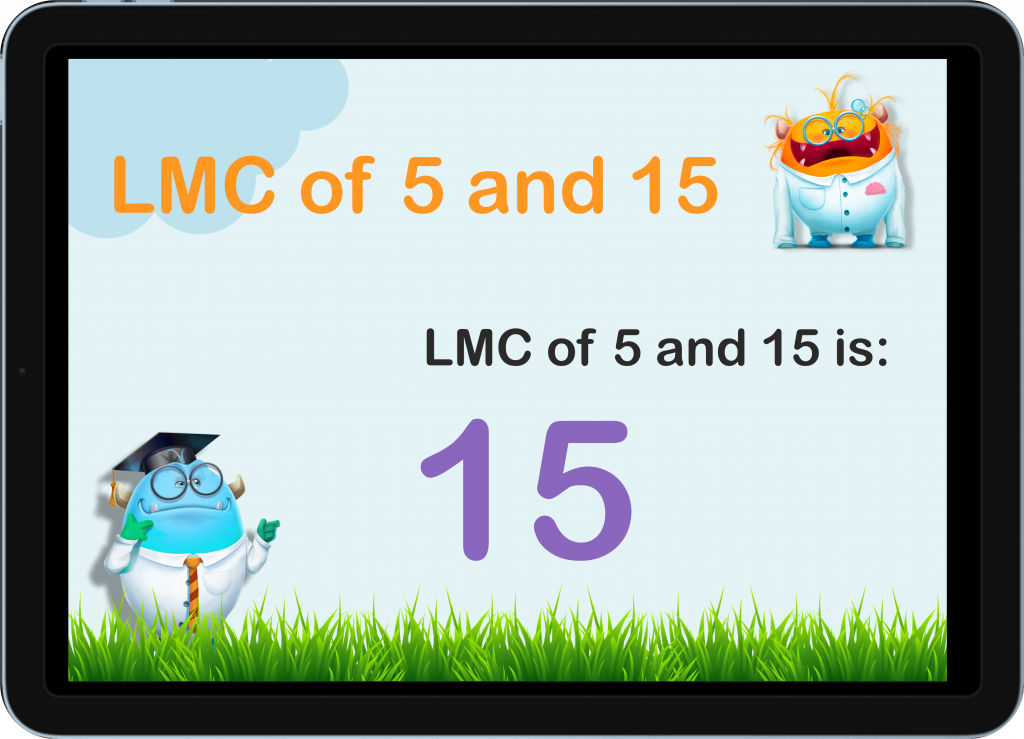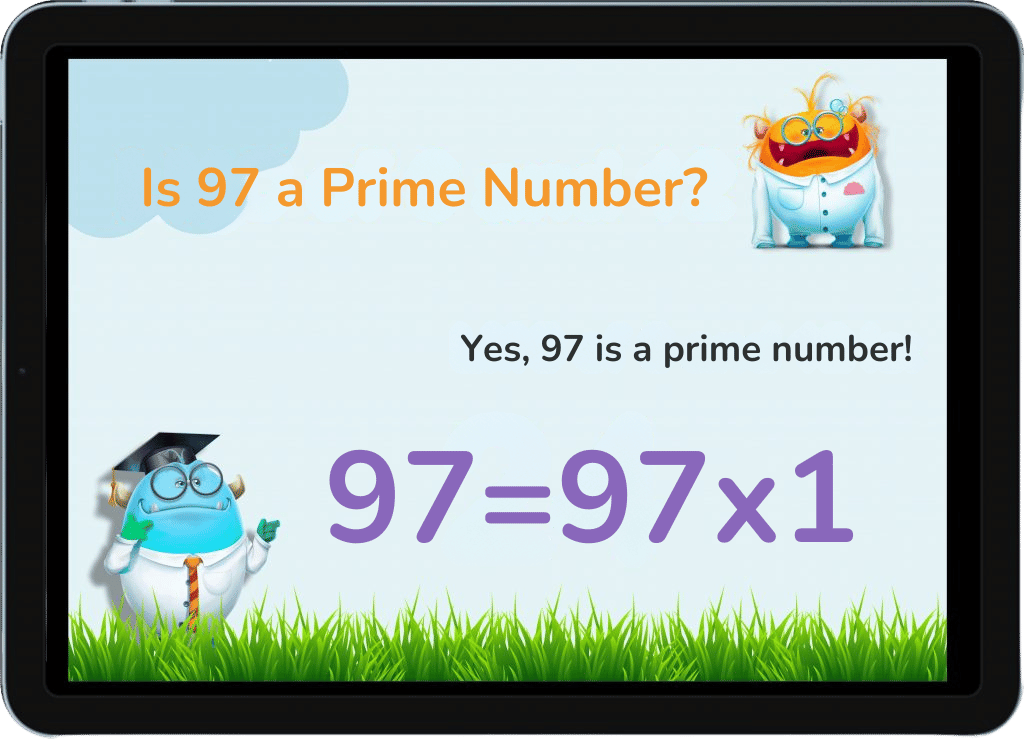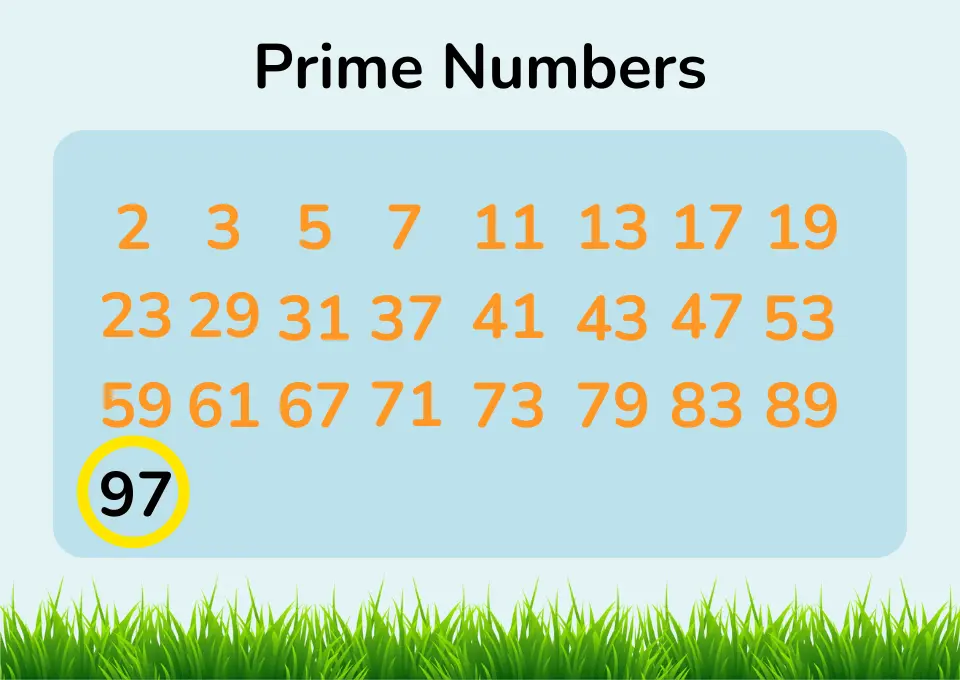Is 2 A Prime Number?
Prime vs. Composite Numbers
Greetings, young math enthusiasts! Today, let’s set sail on a mathematical voyage to determine if 2 is a prime number, and learn more about the difference between prime and composite numbers.

Is 97 a Prime Number?
Or Is 97 a Composite Number?
Numbers are a playground of excitement, each with its unique tale to tell, and 89 is no exception. Sure, it’s a prime number, but there’s so much more to discover. Let’s jump in and explore its fascinating world.


No credit card required

No credit card required
What are Prime Numbers?
Is 97 a Prime Number?
Double-check if 97 is a Prime Number
Why is 97 a Special Prime Number?
Is 97 a Twin Prime?
Is 97 a Cousin Prime?
Is 97 a Sexy Prime?
Is 97 a Composite Number?
What are Prime Numbers?
Prime numbers are like special treasures in the world of math. They can only be divided evenly by 1 and themselves. This means they have exactly two distinct positive divisors. Think of prime numbers as exclusive club members with a very strict entry rule! Some examples of prime numbers are 2, 3, 5, 7, and 11.
Is 97 a Prime Number?

Absolutely, 97 is indeed a prime number. It can only be divided evenly by 1 and 97, which fits perfectly into the prime number club. This makes 97 a proud member of the prime number family!
How to Determine if 97 is a Prime Number
o figure out if 97 is a prime number, we need to check if it has any divisors other than 1 and itself. For 97, it’s like trying to divide a whole apple into exact smaller pieces without any leftovers, and you can only use 1 or 97 pieces.
No other numbers work without leaving a piece of apple behind! This confirms that 97 is a prime number.
How is 89 a Prime Number?
Since 97 can’t be divided evenly by any number other than 1 and 97, it fits the definition of a prime number perfectly. To double-check, we can test its divisibility by prime numbers less than the square root of 97, which is about 9.8.
Prime Factorization of 97
The prime factorization of 97 is simply 97 itself. It can’t be broken down into other prime numbers because it’s already a prime. It’s like trying to split a single pearl – it’s just one perfect piece!
So, we test it with 2, 3, 5, and 7. None of these numbers divide 97 evenly, which means no matter how hard we try, 97 remains a prime number.
Why is 97 a Special Prime Number?
- Largest Two-Digit Prime: Did you know that 97 is the largest two-digit prime number? It’s the grand finale of the two-digit prime club!
- Proth and Pierpont Prime: 97 is both a Proth prime and a Pierpont prime, making it quite special among primes.
- Self Number: In base 10, 97 is a self number. This means there’s no other number that you can add to its digits to get 97.
- Happy Primes: Numbers like 97, 907, 9007, 90007, and 900007 are all primes and are called happy primes. They spread joy wherever they go!
- Emirp: If you reverse the digits of 97, you get 79, which is also a prime. This makes 97 an emirp – a prime that stays prime even when flipped!
- Isolated Prime: 97 is an isolated prime because the numbers right before and after it, 95 and 99, are not primes. It’s like 97 is enjoying some quiet time alone in the prime universe.
Is 97 a Twin Prime Number?
A twin prime is a pair of prime numbers that differ by 2. For example, (11, 13) and (17, 19). Since 95 and 99 are not prime numbers, 97 does not have a twin prime partner. So, 97 is not a twin prime.
Is 97 a Cousin Prime Number?
A cousin prime is a pair of prime numbers that differ by 4. For instance, (7, 11) and (13, 17). Since 93 and 101 are not both prime, 97 does not fit this category. Thus, 97 is not a cousin prime.
Is 97 a Sexy Prime Number?
A sexy prime is a pair of prime numbers that differ by 6. An example would be (5, 11) and (11, 17). Because 91 and 103 are not both prime, 97 does not qualify as a sexy prime. Therefore, 97 is not a sexy prime.
So, while 97 has many fascinating properties, it isn’t a twin, cousin, or sexy prime. But its unique traits still make it a standout number in the world of mathematics!
Is 97 a Composite Number?
No, 97 is not a composite number because it only has two distinct positive divisors: 1 and 97. Composite numbers have more than two positive divisors.
Learn More About Prime Numbers
© 2024 Smartick. All Rights Reserved.
